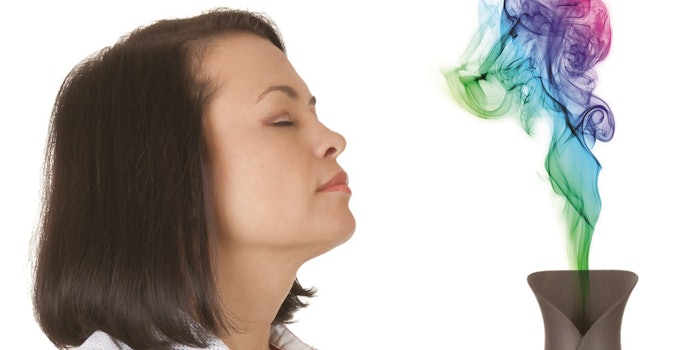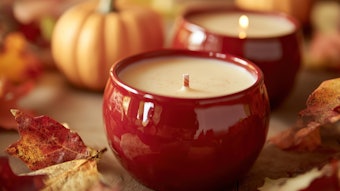
Widespread accusations over fake news and outrageous marketing claims have shot consumer skepticism through the roof. In fact, many consumers have moved past the sense of seeing to believing. They need something more—like olfactory stimuli—to not just connect with products, but maintain their physical and mental health. This brief literature review sniffs out these new opportunities.
The Smell of Brand Marketing
If you’re headed to the hospital, your usual thoughts (if there’s time to think) are about the care you’ll receive, the procedure you’ll undergo or insurance coverage. But a recent article published in Researchgate explores how hospitals in Sri Lanka use sensory marketing to attract customers and establish a brand image.
According to the author, this industry is highly competitive, so promotions are made using the five senses to gain and retain clientele. Indeed, a positive association was observed, for example, between olfactory factors and brand perception; and impact brand loyalty. Thus, one should not underestimate the smell in the lavatory, which can create an inverse effect on hygiene and, in return, on brand loyalty. Here, the author notes that scent in lavatories is difficult to control, and therefore use fragrances such as cinnamon spice to suggest a hygienic feeling.1
Scent Descriptors Drive Purchasing
A recent book2 on the science of analytics and data explored the importance of scent-related words for decision-making. One chapter in particular combined neuroscience and behavioral experiments to assess emotions triggered by olfactory-related information and effects on consumer decisions.
The world has moved to an e-format, especially in the case of retailing. So, in an online context, olfactory information is currently limited to visual means to trigger olfactory sensations. As such, these authors explored the effectiveness of using sensory-relevant brand names in online ads to trigger emotions and influence consumer attitudes toward ads, brands and purchasing intentions. Interestingly, effects on cognitive and emotional processes were observed, implicating the importance of scent-related words and brands for marketing.2
Scent Dieting
Another book considered factors that influence eating behavior3 to address obesity. Here, different types of ambient scents were shown to influence perceived temperature and in turn influence consumption volume and choice.
Yuzu Fruit Smell Calms PMS
A recent article published in the Journal of Alternative and Complementary Medicine4 showed the effects of inhaling the scent of the Japanese citrus fruit yuzu, or Citrus junos Sieb. ex Tanaka, on premenstrual emotional symptoms. According to the study abstract, 10 min inhalation of the yuzu scent significantly decreased heart rate and increased the high-frequency power of heart rate variability, reflecting parasympathetic nerve activity, in subjects in their luteal phase.
Additionally, inhalation of the yuzu essential oil significantly decreased three negative subscales: tension–anxiety, anger-hostility, and fatigue as long as 35 min after the aroma stimulation. These premenstrual psychoneurophysiologic effects aligned with those of lavender, a scent well-known to be relaxing.
Heart-healthy Aromatherapy
Work published in PLOS One sought to develop a method to quantify the effects of odor stimulation on cardiorespiratory functions over time and to assess the usefulness of clinical aromatherapy. Eighteen subjects were assigned to one of two resting protocols. Protocol 1: after resting for 2 min in a sitting position breathing room air, the subject inhaled either air or air containing sweet marjoram essential oil for 6 min; protocol 2: after laying for 5 min, the subject inhaled the essential oil for 10 min, and then recovered for 10 min breathing room air.

All subjects inhaled the oil through a face mask attached to one-way valve, and beat-to-beat heart rate (HR) and arterial blood pressure (BP), as well as breath-by-breath respiratory variables, were continuously recorded. In both protocols, during fragrance inhalation of the essential oil, time-dependent decreases in mean BP and HR were observed (p < 0.05). During post-inhalation recovery, a significant fragrance-induced slowed heartbeat effect lasted at least 5 min. However, such fragrance-induced changes were not observed in the respiratory variables.
According to the authors, this approach may be useful for scientific evaluation of aromatherapy as an approach to integrated medicine.5
Mental ‘Smell’ness
A recent article published in Psychiatria Danubina6 describes a concept for a wearable technology known as “e-Scent,” which combines emotional sensing capabilities with aromatic release for immersive experiences and health benefits; especially serious psychiatric conditions. According to the author, the technology picks up on the wearer’s emotions and vital signs and sends a personalized “scent bubble” to their nose to circumvent emotional and mental relapses.
A previous case study used mobile scent devices attached to an iPhone and found that dispensing lavender near the facial area changed the mood of the user from anxious anticipation to a sense of calm. In relation, this paper introduced the eScent project, which informed by “lived experiences” could manage affective disorders and enhance an overall sense of well-being, alleviate anxiety and reduce the risk of acute bipolar disorder episodes through the power of aromatics.
Smell Yourself Smarter
Finally, a recent review7 focused on nutritional supplements to enhance human intelligence, but also highlighted inhaled or orally ingested Rosmarinus officinalis (rosemary) for brain-boosting benefits. According to the authors, this woody, perennial herb with fragrant, needle-like evergreen leaves is a member of the mint family Lamiaceae. Extracts from its small, light blue flowers and leaves yield a powerful and refreshing herbal smell.
Previous work found subjects performed increasingly better on cognitive tasks in relation to the concentration of 1,8-cineole absorbed following exposure to rosemary aroma. The extract also has been shown to possess brain-stimulating properties and aid memory improvement.
Physically, it also stimulated increases in blood pressure, heart rate and respiratory rate and subjects became more active and reported feeling “fresher” after its inhalation.











